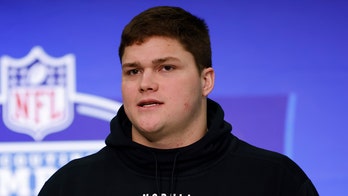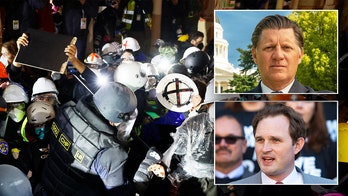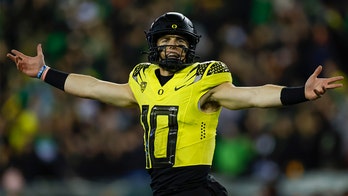A U.S. appeals court has ruled that college athletes whose efforts primarily benefit their schools may qualify as employees deserving of pay under federal wage-and-hour laws, posing a setback to the NCAA's long-held notion of "amateurism" in college sports.
The National Collegiate Athletic Association (NCAA) has long maintained that college athletes are not employees but rather unpaid amateurs who participate in sports for the love of the game. However, a recent ruling by a U.S. appeals court has challenged this assertion, opening the door to the possibility that college athletes may indeed qualify as employees deserving of pay under federal wage-and-hour laws.
In a lawsuit filed by Division I athletes and former athletes, the court ruled that a test should be developed to differentiate between students who play college sports for recreational purposes and those whose effort "crosses the legal line into work." This ruling aligns with a growing trend of legal challenges to the NCAA's "amateurism" model, which has been criticized as violating fair labor practices.

NCAA's 'Amateurism' Model Challenged: College Athletes May Qualify as Employees Deserving Pay
The court's decision hinges on the "economic reality" of the relationship between college athletes and their respective schools. The plaintiffs argue that colleges are violating fair labor practices by failing to pay athletes for the time they dedicate to their sports, which can often average 30 or more hours per week.
"With professional athletes as the clearest indicators, playing sports can certainly constitute compensable work," U.S. Circuit Judge L. Felipe Restrepo wrote in the ruling. "Ultimately, the touchstone remains whether the cumulative circumstances of the relationship between the athlete and college or NCAA reveal an economic reality that is that of an employee-employer."
While the ruling acknowledges that college athletes may qualify as employees, it does not provide a clear formula for calculating fair wages. Lawyer Paul McDonald, representing the plaintiffs, has suggested that athletes might make $2,000 per month or $10,000 per year for participating in NCAA sports.
He argues that many students need the money for everyday expenses and that the NCAA's failure to pay them is a violation of fair labor practices. "This notion that college athletes cannot be both students and employees is just not accurate when you have student employees on campuses," McDonald said. "It’s just beyond belief, the idea that the athletes would not meet the same criteria as employees."
The NCAA has resisted efforts to classify college athletes as employees, arguing that it would fundamentally alter the nature of college sports. The organization argues that paying athletes would destroy the "amateurism" that is essential to the collegiate experience.
Baylor University President Linda Livingston, speaking at the NCAA convention, warned that turning student-athletes into employees would have a "sprawling, staggering and potentially catastrophic impact on college sports broadly."
Despite the NCAA's resistance, the relationship between college athletes and their schools has faced increasing scrutiny in recent years. In 2021, a top lawyer for the National Labor Relations Board said in a memo that college athletes should be treated as school employees.
Players have also taken to social media to argue for a cut of the hundreds of millions of dollars that NCAA schools earn on sports, including a campaign on the eve of the 2021 NCAA basketball tournament that carried the hashtag #NotNCAAProperty.
The ruling by the U.S. appeals court represents a significant setback to the NCAA's "amateurism" model. It is likely to lead to further legal challenges and could ultimately result in a fundamental shift in the way college athletes are compensated.










